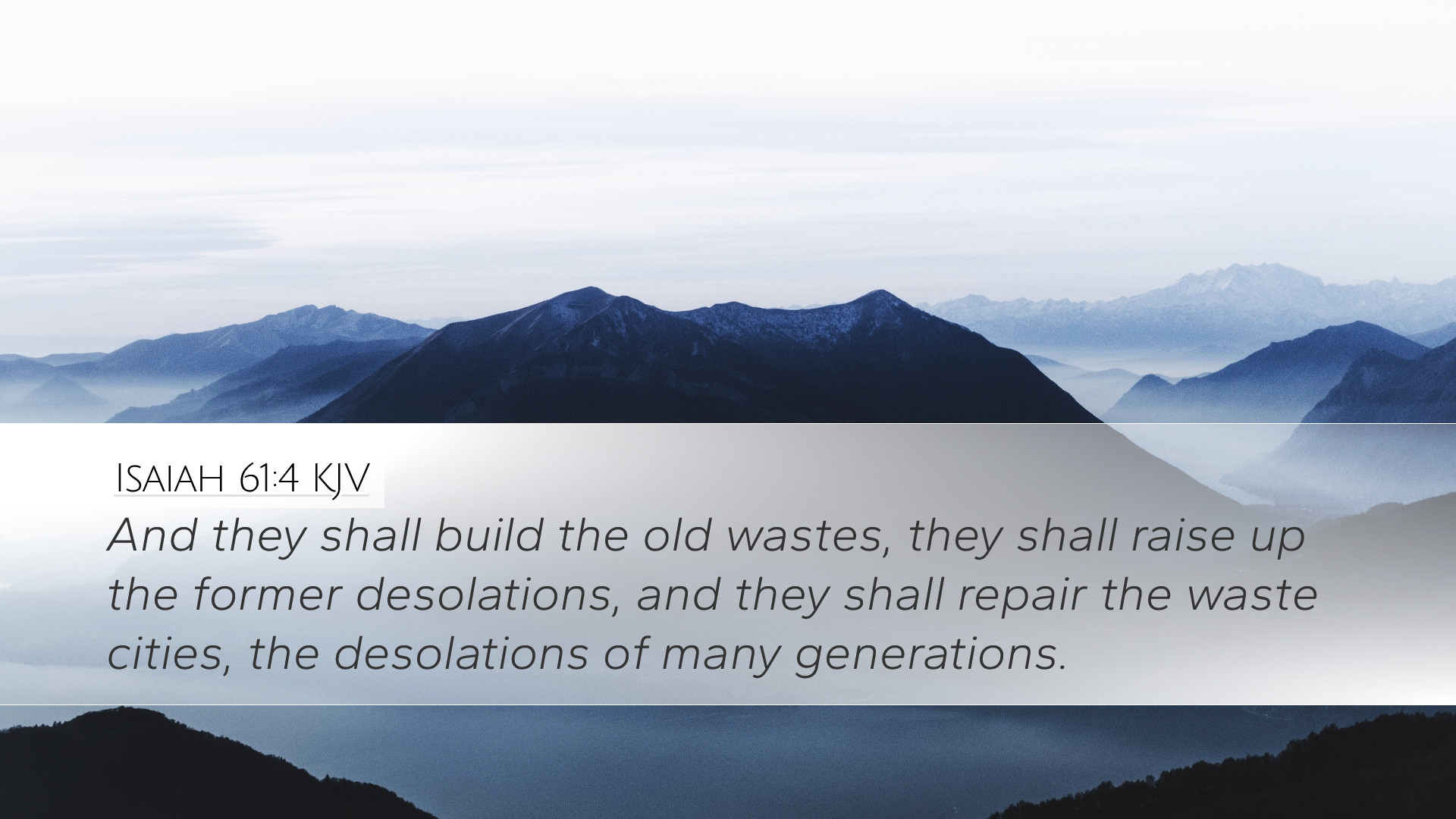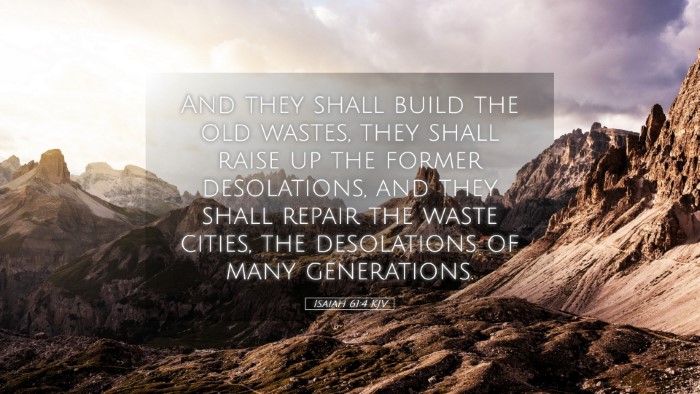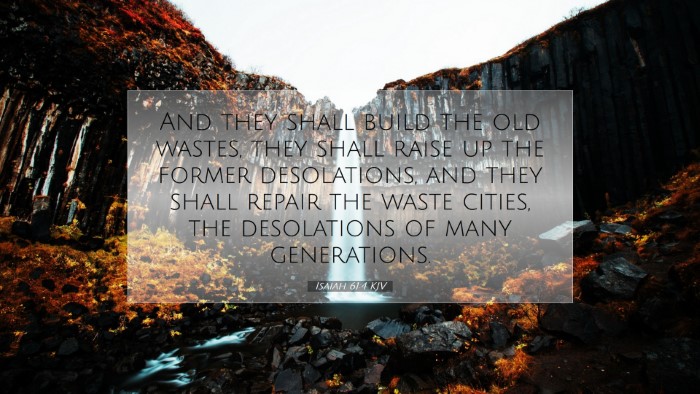Commentary on Isaiah 61:4
Isaiah 61:4 states: "And they shall build the old waste places; they shall raise up the former desolations; and they shall repair the waste cities, the desolations of many generations."
Introduction
This verse comes from a passage that reflects God's promise of restoration and renewal. In the context of the exiled Israelites, it is a prophetic declaration concerning the future rebuilding of Jerusalem and the restoration of Israel. The emphasis is on both physical restoration and spiritual revival, signifying a powerful theme consistent throughout Scripture.
Historical Context
In the days of Isaiah, the people of Israel faced immense challenges, including exile, destruction, and despair. The promise contained in Isaiah 61 anticipates a time when the captives will be freed, and Jerusalem will be restored. This restoration, both in a literal and metaphorical sense, was crucial for the identity and future of the Israelites, as it reaffirmed God's covenant with His people.
Commentary Insights
-
Matthew Henry:
Henry underscores the metaphorical significance of rebuilding in the spiritual sense. He emphasizes that the work of restoration speaks to God's mercy and faithfulness. The act of building up what was once desolate is not merely the physical restoration of Jerusalem but illustrates the transformation of hearts, homes, and community life.
-
Albert Barnes:
Barnes notes the implications of restoration for future generations. He argues that rebuilding the waste places indicates a generational blessing, as those who inherit the restored cities will prosper from the labor and faithfulness of their ancestors. He elaborates on the renewal of society and the responsibilities of the faithful to engage in rebuilding efforts, both materially and spiritually.
-
Adam Clarke:
Clarke provides a detailed explanation of the various 'waste places' referenced in the text. He articulates the necessity of repair and restoration, emphasizing that the work ahead is arduous and requires perseverance. Clarke extends this idea by suggesting that these verses apply to the church's ongoing mission of healing and restoration in a broken world.
Theological Implications
Theologically, Isaiah 61:4 serves as a reminder of God's unyielding commitment to His people. It encapsulates the message of hope that is prevalent throughout the Bible. Importantly, it invites believers to participate in God’s redemptive work. Restoration can be seen as both a communal and personal call; Christians are encouraged to engage actively in their communities, helping to mend what has been broken.
Application for Pastors and Leaders
For pastors and church leaders, this verse is a powerful reminder of their role in fostering restoration within the church and the broader community. The rebuilding of 'waste places' can translate into initiatives aimed at healing the wounds caused by sin, division, and trauma. Leaders are called to inspire congregations to engage in social justice, community service, and spiritual formation, reflecting the restorative nature of Christ's ministry.
Reflection for Students and Theologians
Theologians and students of the Word are encouraged to delve into the implications of God’s promise of restoration found in this short verse. The reflection on historical and prophetic context provides a fuller understanding of God’s redemptive plan. Furthermore, exploring the relationship between physical restoration and spiritual renewal can yield rich insights into biblical theology and eschatology.
Conclusion
Isaiah 61:4 serves as a profound testament to God’s faithfulness and unceasing desire to restore His people. As the people of Israel were called to rebuild, so too are believers today invited into this restorative mission. May we be inspired to engage in works that repair the brokenness within our communities, trusting in God's ultimate provision and plan.


